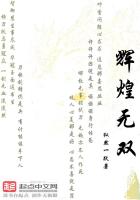As I reach the deion of the last days of my father's life, I must once more make it clear that what I write is based only on the personal impressions I received in my periodical visits to Yasnaya Polyana.
Unfortunately, I have no rich shorthand material to rely on, such as Gusef and Bulgakof had for their memoirs, and more especially Dushan Petrovitch Makowicki, who is preparing, I am told, a big and conscientious work, full of truth and interest.
In November, 1906, my sister Masha died of inflammation of the lungs. It is a curious thing that she vanished out of life with just as little commotion as she had passed through it. Evidently this is the lot of all the pure in heart.
No one was particularly astonished by her death. I remember that when I received the telegram, I felt no surprise. It seemed perfectly natural to me. Masha had married a kinsman of ours, Prince Obolenski; she lived on her own estate at Pirogovo, twenty-one miles from us, and spent half the year with her husband at Yasnaya. She was very delicate and had constant illnesses.
When I arrived at Yasnaya the day after her death, I was aware of an atmosphere of exaltation and prayerful emotion about the whole family, and it was then I think for the first time that I realized the full grandeur and beauty of death.
I definitely felt that by her death Masha, so far from having gone away from us, had come nearer to us, and had been, as it were, welded to us forever in a way that she never could have been during her lifetime.
I observed the same frame of mind in my father. He went about silent and woebegone, summoning all his strength to battle with his own sorrow; but I never heard him utter a murmur of a complaint, only words of tender emotion. When the coffin was carried to the church he changed his clothes and went with the cortege.
When he reached the stone pillars he stopped us, said farewell to the departed, and walked home along the avenue. I looked after him and watched him walk away across the wet, thawing snow with his short, quick old man's steps, turning his toes out at a sharp angle, as he always did, and never once looking round.
My sister Masha had held a position of great importance in my father's life and in the life of the whole family. Many a time in the last few years have we had occasion to think of her and to murmur sadly: "If only Masha had been with us! If only Masha had not died!"
In order to explain the relations between Masha and my father I must turn back a considerable way. There was one distinguishing and, at first sight, peculiar trait in my father's character, due perhaps to the fact that he grew up without a mother, and that was that all exhibitions of tenderness were entirely foreign to him.
I say "tenderness" in contradistinction to heartiness.
Heartiness he had and in a very high degree.
His deion of the death of my Uncle Nikolai is characteristic in this connection. In a letter to his other brother, Sergei Nikolayevitch, in which he described the last day of his brother's life, my father tells how he helped him to undress.
"He submitted, and became a different man. . . . He had a word of praise for everybody, and said to me, 'Thanks, my friend.'
You understand the significance of the words as between us two."
It is evident that in the language of the Tolstoy brothers the phrase "my friend" was an expression of tenderness beyond which imagination could not go. The words astonished my father even on the lips of his dying brother.
During all his lifetime I never received any mark of tenderness from him whatever.
He was not fond of kissing children, and when he did so in saying good morning or good night, he did it merely as a duty.
It is therefore easy to understand that he did not provoke any display of tenderness toward himself, and that nearness and dearness with him were never accompanied by any outward manifestations.
It would never have come into my head, for instance, to walk up to my father and kiss him or to stroke his hand. I was partly prevented also from that by the fact that I always looked up to him with awe, and his spiritual power, his greatness, prevented me from seeing in him the mere man--the man who was so plaintive and weary at times, the feeble old man who so much needed warmth and rest.
The only person who could give him that warmth was Masha.
She would go up to him, stroke his hand, caress him, and say something affectionate, and you could see that he liked it, was happy, and even responded in kind. It was as if he became a different man with her. Why was it that Masha was able to do this, while no one else even dared to try? If any other of us had done it, it would have seemed unnatural, but Masha could do it with perfect simplicity and sincerity.















